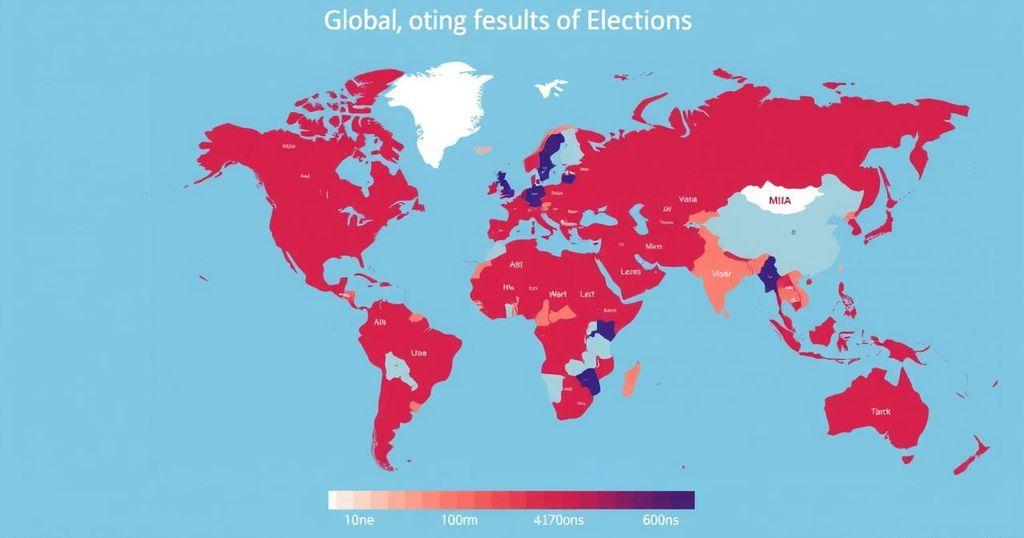In 2024, elections across over 70 countries, including pivotal EU parliamentary votes, engaged around four billion citizens. The voter turnout averaged 61%, with Rwanda’s 98.2% leading globally. Key results included Narendra Modi’s BJP losing majority in India, Donald Trump’s victory in the US, and new leadership in multiple nations. The election cycle highlighted both prominent incumbents and new challengers, signaling significant political shifts worldwide.
In 2024, over 70 countries participated in various electoral processes, including 27 European Union nations casting votes for the EU parliamentary elections. Collectively, these events engaged approximately four billion individuals, nearly half of the global population. Significant elections spanned continents, with diverse voter turnout rates. Notable outcomes included Narendra Modi’s Bharatiya Janata Party forming a coalition in India despite losing its majority, and incumbent President Donald Trump winning in the United States after a divisive campaign. Other nations, such as Rwanda and Uruguay, saw high voter engagement, leading to the re-election of long-standing leaders and the emergence of new political figures. The elections were marked by contrasting trends, with both surprises and predictable results across regions, reflecting global dynamics.
The 2024 electoral season showcased a vibrant democratic engagement worldwide, as numerous countries held elections that profoundly impacted governance and political landscapes. The varied voter turnout figures highlighted disparities in political engagement and trust in governmental institutions. In particular, countries like Rwanda demonstrated exceptional turnout rates, while nations like Tunisia faced dismal participation levels. The outcomes revealed shifts in political sentiments, as established incumbents were challenged and new leaders emerged in several regions, indicating an evolving global political stage.
The elections of 2024 illustrated a complex tapestry of political expressions worldwide, with incumbent leaders often facing significant challenges while new political movements gained traction. Voter engagement varied dramatically, signaling different degrees of public trust in electoral processes. As nations navigate their unique political contexts, the outcomes of these elections will likely influence regional and global governance for years to come. This cycle was not merely a reflection of established powers but demonstrated the potential for renewed democratic participation and change.
Original Source: www.aljazeera.com






